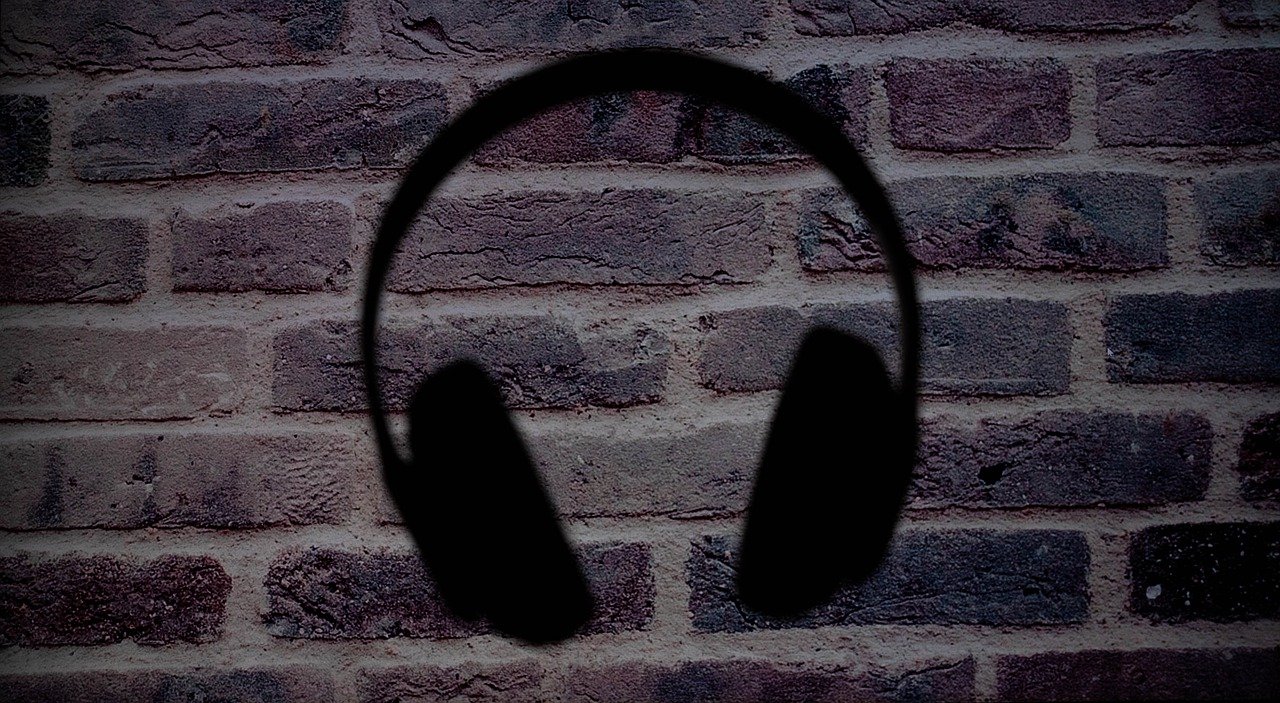If you are troubled from the traffic noise inside your house, or the sound from your neighborhood, you can minimize it with some tweaks here and there. You can stop sounds coming through walls by following some simple techniques and adjustments.
You can choose to focus on the wall’s weak points, look for the probable holes, and glue them. With the introduction to acoustic items, you can use acoustic foams or place acoustic wall tiles to stop sounds. Other ways are using mass-loaded vinyl on your wall and keeping some furniture against the wall to fill the spaces.
You can also use soundproofing paints for painting the walls, but a white noise machine always works as an immediate solution. Choosing noise-reducing drywall helps to lower the noise transfer rate between rooms and almost stop sounds. Insulating the interior walls also contributes to stopping sounds through walls.
This article guides you with valuable insight, queries, and solutions related to sounds and walls.
Can sound travel through walls?
Yes, sound travels through walls. A sound is a form of mechanical vibration that hits the wall to make it vibrate, and subsequently, the other side of the wall vibrates the air on that side. A strong, rigid wall won’t let the vibration disperse too much, reducing the sound passing through it.
- The sound waves traveling through walls pass almost unrestricted at the membrane’s resonance frequency.
- Naturally, if the holes in the walls are smaller than the sound’s wavelength, they will be unable to pass through them.
- However, some resonant effects can make the sounds travel through walls via sub-wavelength holes.
Do walls absorb sound?
Yes, walls absorb sound. Walls are absorbent material that absorbs sound energy when the sound waves come in contact with them. Thus, the sound doesn’t get reflected in the space.
When the walls of a room collide with sound from a loudspeaker, some part of the sound energy gets reflected, some gets transmitted, and some get absorbed by the walls. The definition of how well a wall absorbs sound is determined and quantified by the total absorption area of the walls, which are the effective ones.
Does a block wall reduce noise?
Yes, a block wall reduces noise. Generally, the more solid and rigid the wall, the lesser the noise as the sound waves gets absorbed by dense and thick walls.
- The super mass of masonry walls made of stone, brick, or concrete makes them the best block wall to reduce noise.
- A concrete masonry acts as a block wall by diffusing the noise over various ranges of frequencies. It works well in absorbing the noise going out from a room. At the same time, it absorbs sound within the room. Thus, preventing the noise within a room from getting too loud. This is because, a reflective material will keep reflecting the sound within the room, creating a lot of noise.
- This noise control material also works as an effective sound absorbent material that absorbs noise generated within a room.
How much sound does a wall block?
A typical brick wall blocks an average sound of 40 dB, and any stud wall blocks sound by 30 dB.
You must know that a normal silent room has sound measuring around 35 dB, and anything above this level is considered a loud noise.

Why can I hear through my walls?
Airborne noises such as music, conversational voice lead to sound transfer, making the sound waves strike the walls. It results in the walls vibrating due to pressure variation. This sound’s vibrational energy gets transferred through your walls, radiates, and makes you hear on the other side.
You must know that only low-pitched sounds pass through the walls, but the high-pitched noise stays blocked by the wall. This is because the low-pitch sounds have longer wavelengths that easily pass through solid objects and small holes.
WALL CONSTITUENTS AND THEIR SOUND BLOCKING PROPERTIES
Is cement a good sound insulator?
Yes, cement as a part of the concrete is a good sound insulator. However, the overall effect depends on the density. if the density is high, sound insulation will be higher. But it will have poor sound absorption. If the cement in the concrete is porous, it will be better in sound absorption but poor in sound insulation. Concrete cement acts to reflect sound waves and absorb them as an effective sound insulator or barrier.
Sound insulation will certainly prevent the noise from going out. However, it will make the sound reflect back within the room, increasing the noise inside.
Is concrete a good sound absorber?
Concrete is precisely limited in terms of sound absorption. However, it shows an exceptional performance as a sound-reflecting material, which is usually considered best to block noise transmitted into a room. However, concrete masonry can be an effective sound absorbent for absorbing sound generated within a room.
Can concrete stop bass?
No concrete cannot stop bass from entering the room completely, but it may lower the impact. A very few houses are built with solid concrete walls nowadays. Even if the wall has a modern insulated party wall, it cannot stop bass from entering through the walls.
- You can also reduce bass by placing the subwoofer on the cinder block’s top as they are not resonant like wood.
- The cinder block also fills in the gap between the resonant material like the drywalls on walls and the subwoofer.
- You need more and more cushioning to absorb bass sound over concrete walls
What does brick do to sound?
A brick wall reflects and blocks sound instead of absorbing it. This is because bricks are dense and structurally thick.
- Noise from outside: The brick wall stop sounds from passing through the wall due to its thickness and density, but the waves travel and bounce back towards the source instead of getting absorbed.
- Inside noise: Brick walls have a high density that helps them block sound. However, sound waves never easily penetrate the brick walls but bounce and affect the noise inside the room.
Below is a table representing the type of walls and the sound ranges they block or allow.
Type Of Walls | Sound Range They Block/Allow |
Wood | STC – 63 (approx) |
Concrete | Absorbs 70% noise Deflects 30% noise STC – 53 (approx) |
Bricks | A typical 4” brick has an STC of 45 |
Porcelain | STC – 50 (approx) |
Cardboard | Reduces noise up to 40% STC – 55 (approx) |
Stone | Absorption coefficient – 0.05 STC – 60 (approx) |
Masonry | For 4”-10” thick wall: STC – 44-60 |
Note: STC rating of 20 and below is considered extremely poor, whereas an STC rating of 60 is considered excellent. STC in between 40-50 is considered average.
TOWARDS QUIETER WALLS
What is the best soundproofing for walls?
Techniques for sound proofing
The various best soundproofing techniques for walls are:
- Silencing Ducts: The sound-eliminating duct wrap quiets and silences the noisy ducts to add thermal insulation.
- Knowing The STC Ratings: STC or Sound Transmission Class ratings are mostly seen with soundproofing products nowadays. STC measures the number of decibels of sound reduction from any product.
- Sound Absorption From Acoustic Panels: Before the sounds bounce off the walls, it gets absorbed by the acoustic panels. These panels are made for improving sound inside a room but instead show excellent performance in sound reduction through walls.
- Plugging Up The Sound Leaks: Sound, similar to water, can get through easily from cracks and openings. For stopping the sound leak, you need to use acoustical caulk to the plug holes.
Soundproofing Material
The best soundproofing materials for walls include:
- Soundproof Spray Foam: It comes in a can, which can be sprayed and added to the walls for insulation. It’s best for existing floors or walls.
- Mass-Loaded Vinyl Barrier: This versatile, heavy material reduces noises significantly and works best between walls, ceilings, floors, and hollow doors.
- Acoustic Caulk: Similar to regular caulk, the acoustic caulk seals up the gap in the walls and blocks air. This material has noise-blocking properties that stop sound vibration.
- Sound-Absorbent Wall Panels: The stylish sound-absorbing wall panels absorb sound within a space, ensuring aesthetic as well as effective appeal.
- Soundproof Underlayment: This rubber mat material is applicable on floor walls to reduce sound transmission in different levels.
- Acoustic Floor Tiles: These tiles absorbs the sounds produced due to impact on the walls.
How do you soundproof a wall cheaply?
If you are looking for soundproofing your walls on a budget, you first need to identify the cause or the location of sound leak. Once you have identified the exact cause, you may fix it using some of the following:
- Adding dense and thick mass to the walls
- If the space is empty, add some heavy furniture to the home, if possible.
- Putting strips or drywall on the wall
- Filling up the wall cracks with soundproof sealants or caulk
- Inspect the windows carefully and close gaps, if any.
- Fixing the sound leaks on walls with sealants or an additional layer of vinyl cover
- Focusing repair on the smaller areas of the walls
- Using soundproof materials to insulate the wall cavity
- Hang thick curtains on the walls. You may also add them in layers.
- Place a book shelf next to the wall. Use a book shelf or cabinet that covers the entire wall for the job.
Conclusion
it is possible to reduce the amount of sound coming inside your house. At the same time, it is also possible to prevent the sound from going outside your room. So if you are planning on making a home studio, or are fed up from the noise coming from your neighborhood, you need to identify the locations of sound leak and then fix them accordingly.
Have a good day!




